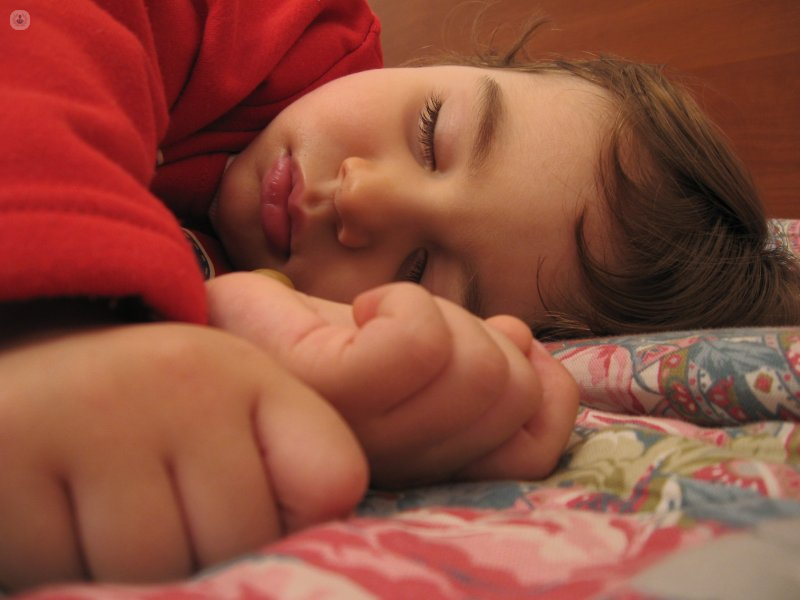Young infants and winter respiratory viruses: how parents can protect their susceptible newborns
Escrito por:Young infants, especially during the first year of life, are high-risk when it comes to contracting what are generally referred to as winter respiratory viruses.
We recently spoke with two highly esteemed London-based consultant paediatricians, Dr Martin Gray and colleague Dr Margarita Burmester, to get their expert insights into winter respiratory viruses.
In our latest article, the highly experienced pair offer their advice to parents with regards to how best to protect their newborns from contracting a common winter respiratory illness.

What are the most common winter respiratory viruses that affect babies?
In the first year of life, infants are susceptible to a numerous amount of winter respiratory viruses, which include rhinovirus (one of the viruses that cause the common cold in adults), influenza viruses that can also affect children, and respiratory syncytial virus, commonly known as RSV.
Not only this, but infants are also susceptible to infection by parainfluenza viruses, adenovirus, human metapneumovirus and enterovirus. The name of the virus is not essential as the constellation of symptoms can be very similar and they all predominately affect breathing.
However, all of the abovementioned viruses tend to occur when we reach late autumn and winter. This is precisely why they are termed winter respiratory viruses.
How can parents protect their children from catching these viruses?
As we emerge from the pandemic and mix more with friends, family, and the general public, this becomes more of a challenge, especially indoors. We know from last winter, at the height of the pandemic, when we observed lockdown, social distancing, and mask-wearing, there were very few hospital presentations of children with winter respiratory viruses.
As a result, we have become more aware of how to protect ourselves from infection. Practicing simple things such as social distancing and hand washing should help protect your infant from winter respiratory viruses.
Other things you can do to protect your baby include:
- protect your baby from smoke
- do not let your baby have contact with sick people
- breastfeed
- make sure household members wash their hands before and after touching a baby with symptoms of a virus
Keeping surfaces and toys clean can also greatly help to reduce the risk of your baby contracting a winter virus.
How serious can some of these illnesses be? How can they affect the respiratory system?
These infections, in most cases, are mild, and will therefore typically consist of nothing more than a fever, a blocked nose and a cough. However, a small number of high-risk infants can become seriously affected and are admitted to hospital.
This is primarily due to the fact that the virus causes breathing difficulties in these infants. As a result, they have problems feeding, maintaining their oxygen saturations, and/or both.
These children are generally admitted to hospital for fluids, tube feeding, oxygen, and, in some cases, mechanical support for their breathing. The good news is that nearly all children make a full recovery with no ongoing problems.
The viruses cause inflammation in the respiratory system characterized by the secretion of thick mucus that infants find difficult to clear from their small airways. This is why they find it difficult to breathe in some cases.
There are no effective treatments for these viruses, so we must support infants as best we can as their own immune system fights off the infection. For high-risk babies, such as premature babies less than 34 weeks gestation with lung disease, there is a medicine called Palivizumab which is given through a monthly injection.
When should parents seek immediate medical help for their young baby?
Many infants will have a fever or a cough. The vital thing to look out for when an infant has significant problems with a winter respiratory virus is if the fever and cough are accompanied by difficulty in feeding, especially when the infant is getting less than half their regular feed.
You may also notice less wet nappies than usual. If the baby is struggling to breathe, you may see the abdomen moving in and out more than usual, and you may notice that the baby is breathing very fast. This is another reason to seek immediate medical help.

What are the main warning signs that could indicate that a young baby is suffering from a respiratory illness?
Signs of a respiratory illness generally start between two to five days after initial contact with the virus. You may see a fever, a runny or blocked nose, cough, difficulty breathing (including short periods without breathing), and problems with feeding and swallowing, due to breathlessness.
More severe symptoms include wheezing, turning blue around the fingertips and lips, and straining of the stomach or chest while breathing.
Both Dr Martin Gray and Dr Margarita Burmester are highly revered paediatric specialists who can offer expert advice in relation to the care of infant health. If you are concerned about your newborn’s health and think they may have caught a respiratory-affecting illness, rest assured that expert medical advice is at your disposal. Check out Dr Gray’s Top Doctors profile here and Dr Burmester’s here to book a consultation.


